

Founder of Astute Aviation. Specialising in modern approach to airline management based on broad and deep understanding of airline and industry issues built on diverse, hands-on experience spanning strategic, network, schedule, and operations planning, gained within network, low cost and charter airlines and within an airline software company. Founder of an airline software company (winner of UK Department of Trade and Industry SMART award for innovation). Author of 'Beyond Airline Disruptions - 1st edition' and 'Beyond Airline Disruptions - Thinking and Managing Anew, 2nd edition' . Blogs at 'Beyond Disruptions'.
Available For: Advising, Authoring, Consulting, Influencing, Speaking
Travels From: London, UK
Speaking Topics: Reinventing decision making in airline industry
| Jasenka Rapajic | Points |
|---|---|
| Academic | 0 |
| Author | 171 |
| Influencer | 7 |
| Speaker | 6 |
| Entrepreneur | 60 |
| Total | 244 |
Points based upon Thinkers360 patent-pending algorithm.
 Can a Tech-Driven ‘Happiness Blanket’ Really Improve Passenger Experience?
Can a Tech-Driven ‘Happiness Blanket’ Really Improve Passenger Experience?
Tags: Business Strategy, Innovation, Leadership
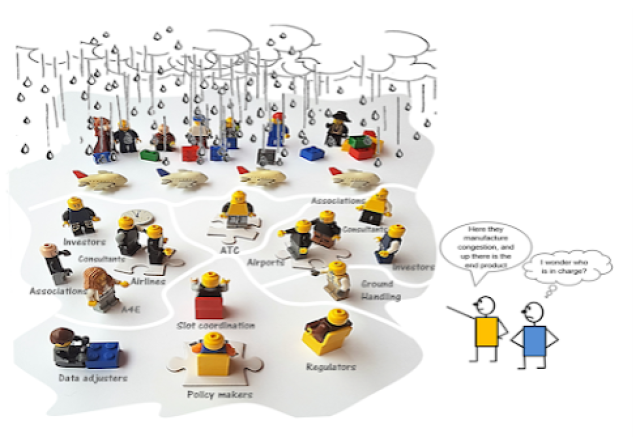 Isn't it time to change the rules of this Congestion Game?
Isn't it time to change the rules of this Congestion Game?
Tags: Business Strategy, Innovation, Leadership
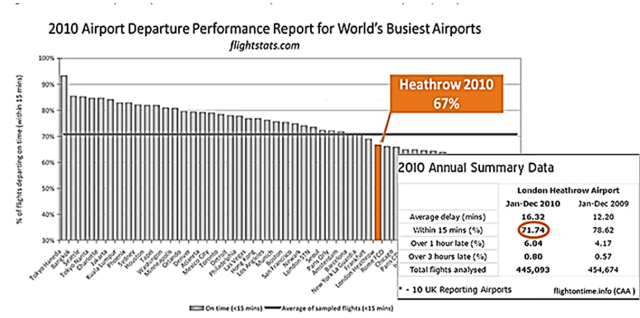 Questioning the Future of Disruptive Air Travel
Questioning the Future of Disruptive Air Travel
Tags: Business Continuity, Business Strategy, Leadership
 Redefining The Future of Flying
Redefining The Future of Flying
Tags: Business Strategy, Innovation, Leadership
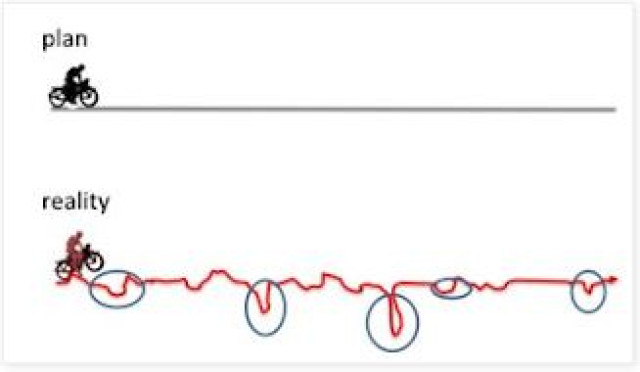 Planning: From Assumptions Through Disruptions To Validated Learning
Planning: From Assumptions Through Disruptions To Validated Learning
Tags: Business Strategy, Innovation, Leadership
 It's Time To Rethink The Airline Pricing Mechanism
It's Time To Rethink The Airline Pricing Mechanism
Tags: Business Strategy, Innovation, IT Strategy
 Questioning efficiency measures
Questioning efficiency measures
Tags: Innovation, Leadership, Business Strategy
 A Different Future Is Coming into View for the Airline Industry. A Time for Airlines and Investors to Get Ready!
A Different Future Is Coming into View for the Airline Industry. A Time for Airlines and Investors to Get Ready!
Tags: Leadership
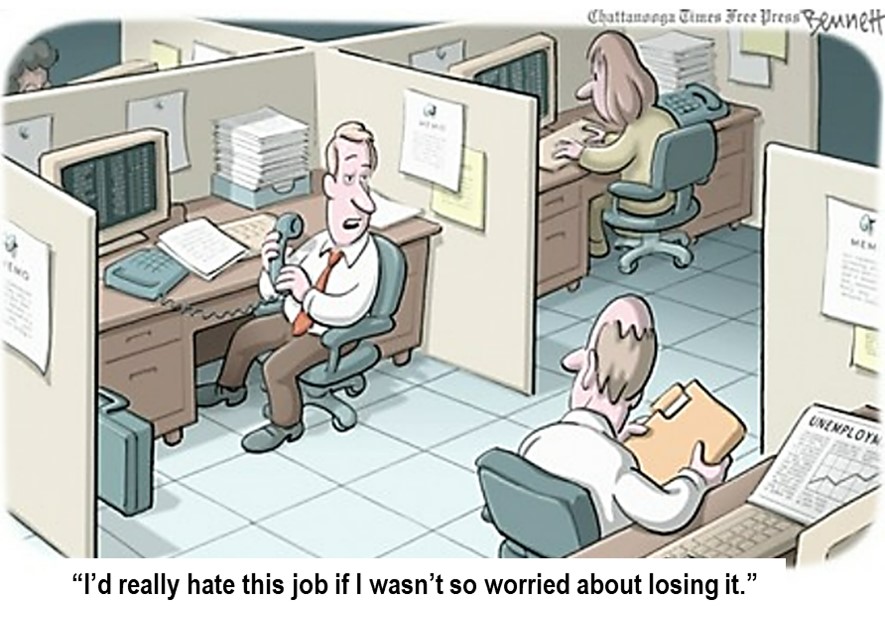 The Role of Feelings in Shaping Business Success
The Role of Feelings in Shaping Business Success
Tags: Culture, Management
 Can Social Media Help Airlines Better Understand Passenger Experience?
Can Social Media Help Airlines Better Understand Passenger Experience?
Tags: Customer Experience, Customer Loyalty
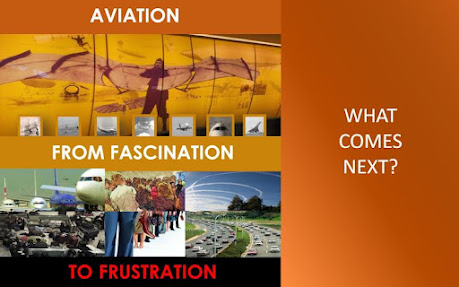 It takes brave leadership to get an airline or an airport out of crisis
It takes brave leadership to get an airline or an airport out of crisis
Tags: Leadership, Business Strategy, Ecosystems
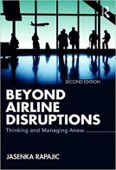 What Overambitious Airline Planning Has To Do With Crew Shortages And What Can Be Done To Make Things Better
What Overambitious Airline Planning Has To Do With Crew Shortages And What Can Be Done To Make Things Better
Tags: Management, Change Management, Business Strategy
 How to align operational and system performance to offer better service at lower cost?
How to align operational and system performance to offer better service at lower cost?
Tags: Management, Leadership, Business Strategy
 How To Align Operational And System Performance To Offer Better Service At Lower Cost
How To Align Operational And System Performance To Offer Better Service At Lower Cost
Tags: Business Strategy, Innovation, Leadership
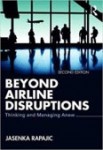 We Have To Plan For Disruptions
We Have To Plan For Disruptions
Tags: Customer Experience, Management, Customer Loyalty
 To Merge, Or Not To Merge, That Is The Question
To Merge, Or Not To Merge, That Is The Question
Tags: Leadership, Business Strategy, Mergers and Acquisitions
 What It Needs To Align Strategies With Operational Capabilities And Why It Is Important
What It Needs To Align Strategies With Operational Capabilities And Why It Is Important
Tags: Digital Transformation, Business Strategy, Mergers and Acquisitions
 Which diagnostic approach and tool do you use to determine the state of health of your organisation? Are you a specialist or a Sage?
Which diagnostic approach and tool do you use to determine the state of health of your organisation? Are you a specialist or a Sage?
Tags: Culture, Business Strategy
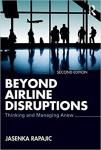 What Airline Passengers Really Want
What Airline Passengers Really Want
Tags: Customer Experience, Customer Loyalty
Tags: Culture, Innovation, Management
 Airline Leadership: The Way Forward
Airline Leadership: The Way Forward
Tags: Innovation, Management, Leadership
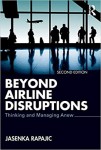 The Way Forward
The Way Forward
Tags: Management, Leadership, Business Strategy
 Furloughs and Layoffs - the Southwest Airlines Way
Furloughs and Layoffs - the Southwest Airlines Way
Tags: Leadership, Risk Management, Business Strategy
 'The Pike Syndrome' Revisited
'The Pike Syndrome' Revisited
Tags: Business Strategy
 Risk vs Uncertainty and How to Make Better Predictions
Risk vs Uncertainty and How to Make Better Predictions
Tags: Management, Risk Management
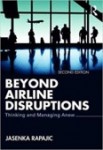 Beyond Airline Disruptions - Thinking and Managing Anew
Beyond Airline Disruptions - Thinking and Managing Anew
Tags: Business Strategy, Innovation, Leadership
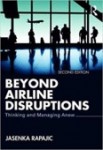 Beyond Airline Disruptions Thinking and Managing Anew, 2nd Edition
Beyond Airline Disruptions Thinking and Managing Anew, 2nd Edition
Tags: Business Strategy, Culture, Leadership
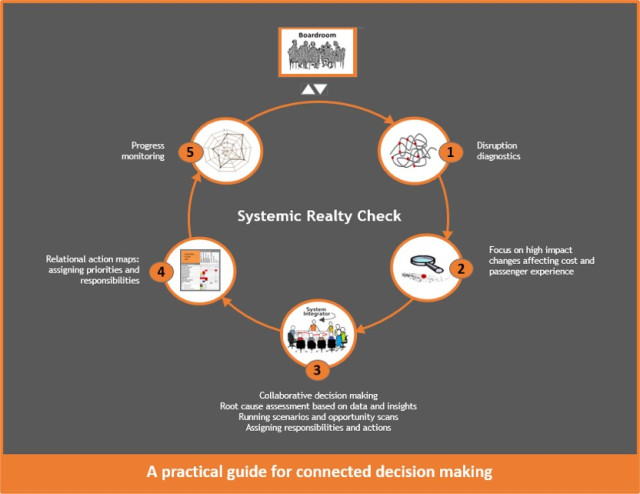 Cutting Through Complexity: A Practical Guide for Connected Decision-Making
Cutting Through Complexity: A Practical Guide for Connected Decision-Making
Tags: Business Strategy, Innovation, Leadership
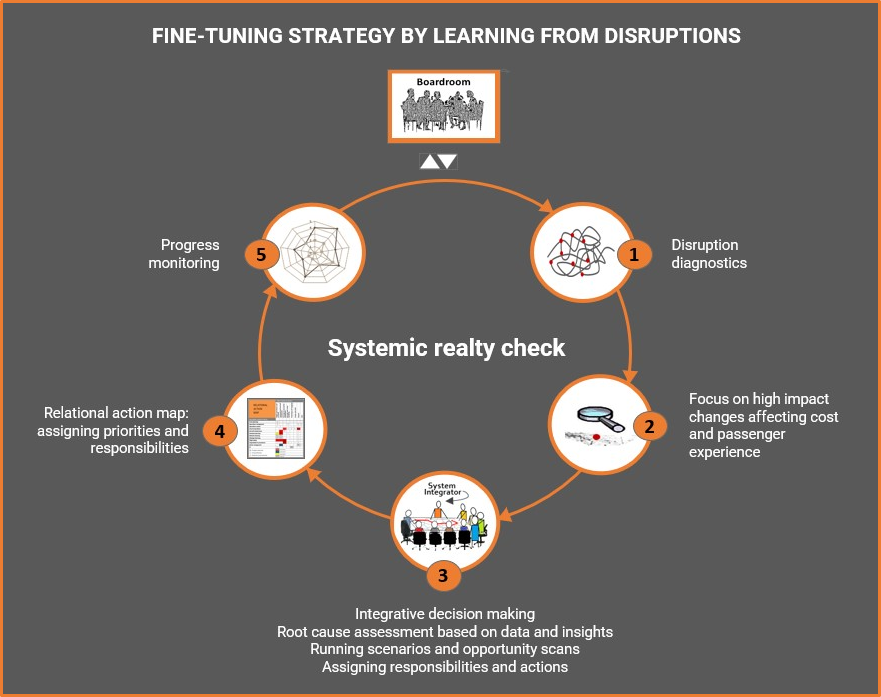 Leading Through Complexity: A Practical Framework for Connected Decision Making in the Airline Industry
Leading Through Complexity: A Practical Framework for Connected Decision Making in the Airline Industry
Tags: Business Strategy, Innovation, Leadership
 Astute Aviation
Astute Aviation
Tags: Emerging Technology, Innovation, Business Strategy
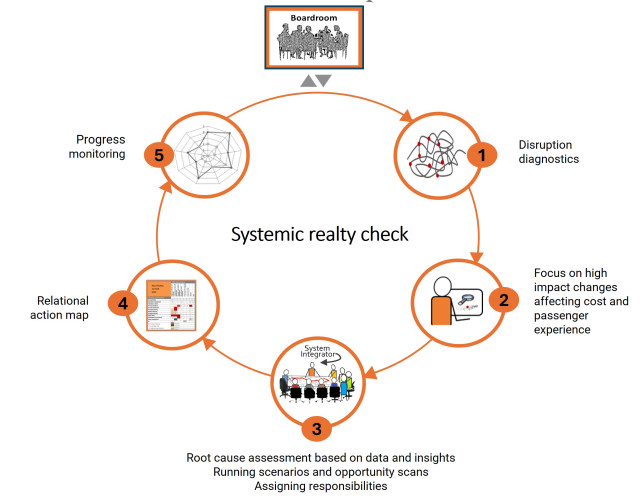 What Siloed AI Is About
What Siloed AI Is About
Tags: AGI, Business Strategy
 Connect and Collaborate to Disrupt Disruptions
Connect and Collaborate to Disrupt Disruptions
Tags: Innovation, Leadership
 Connect and Collaborate to Disrupt Disruptions
Connect and Collaborate to Disrupt Disruptions
Tags: Business Strategy, Culture
 Connect and Collaborate to Disrupt Disruptions
Connect and Collaborate to Disrupt Disruptions
Tags: Customer Loyalty, Leadership, Management
Date : October 17, 2021
 Breaking Through Airline Compensation Denials
Breaking Through Airline Compensation Denials
Here is the story about how passenger ingenuity can outpace rigid and unsustainable rules that prevent them from claiming their right for compensation.
This real life story is about musician Dave Carroll, a United Airlines passenger whose guitar was destroyed by the airline’s baggage handlers and who was denied compensation for the damage. Eight months later, after receiving a final “no” from United, he wrote a song publicly exposing the airline’s customer service and brand. It quickly went viral and, according to mainstream media “within four days of the song going online, the gathering thunderclouds of bad PR caused United Airlines’ stock price to suffer a mid-flight stall, and it plunged by 10 per cent, costing shareholders $180 million.”
United eventually backed down, stating that the company would “use the video internally as a unique learning and training opportunity.”
The massive publicity finally triggered a compensation offer to the passenger which, at his request was donated to charity.
It happened in 2009 and, as of November 2025, it reached over 30million views on YouTube only (still growing), adding to popularity of his book ‘United Breaks Guitars - The Power of One Voice in the Age of Social Media’.
The question remains: is it social media that passengers must use to protect their basic rights, or is it up to airlines to work harder to minimise the number of unpleasant passenger experiences and show more respect for customer claims when things go wrong? And, by doing so, increase their revenue.
But here are bigger questions: who should drive this kind of innovation?
Is it airlines, passengers, or both?
And also, can experience driven AI be able to support that effort and create synergy?
Here is the link:
Tags: AI, Customer Experience, Customer Loyalty
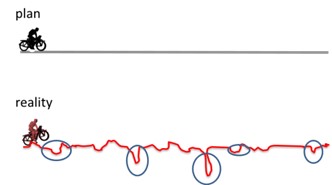 Planning: From Assumptions Through Disruptions to Validated Learning
Planning: From Assumptions Through Disruptions to Validated Learning
How good are our company plans? What kind of assumptions do we make and what happens when they meet reality?
The reference points for every budget year are:
· Assumptions derived from past performance
· Assumptions about things that may impact our company performance in the coming year
· Assumptions about costs
· Assumptions about revenue
· Assumptions about profit
· Assumptions about passenger numbers
· Assumptions about….
Too many assumptions lead to too many disruptions.
We tend to make company plans look smoother and prettier, with the desire to do things better. And then comes the time when these assumptions undergo the test of reality. This is when misfits become visible, leading to a bumpier road ahead and less control over the outcomes expressed through cost, profit, and other performance metrics.
The majority of airlines miss this unique opportunity for learning. The paths of lean airlines with simpler business models are less bumpy. They have easier access to reality, enabling them to learn what works for them and what doesn't.
Traditional airlines, however, are heavier, trapped in once successful but now hard-to-control business models accompanied by rising complexities. This makes them more susceptible to unexpected losses caused by even the smallest challenges.
Can we reduce the number of assumptions and flatten the road ahead?
Yes, we can if we embrace the practice of validated learning and:
· Start thinking afresh
· Become open to learning on the go
· Start testing assumptions in an organised way, focusing on the biggest deviations from the flat lines
Validated learning is an invaluable technique, especially in the age of uncertainty. Instead of bouncing back, we can consider bouncing forward.
This is how improvement happens.
Tags: Business Strategy, Innovation, Management
 The Connected Airline: Rising Above Complexity
The Connected Airline: Rising Above Complexity
In times of unprecedented uncertainty, airline leaders find it hard to adapt to the new circumstances. To survive the crisis, airlines need new approaches that will make strategy and operations work in sync. Pandemic caused reduction in airline activities have created an opportunity to lay the foundation for a more adaptable, resilient organisation, conscious of complexities and its own capabilities to sustain forthcoming challenges.
Making the most of this opportunity requires a shift in perception of what planning and strategizing is about, with focus leaning towards emergent, context-related problems. It requires rising above limitations imposed by organisational structures and management practices and engaging collective intelligence when making decisions that require constant adjustments in a continuously changing environment.
If we can create a space, a platform where people around the airline can continually find ways to improve locally whilst being keenly aware of the company's goals, we will improve the odds of our airlines thriving in good and in difficult times. Along the way, much will be learnt - mostly from experience.
As Eric Ries said, under conditions of high uncertainty, learning is the most vital function. We must learn the truth about which elements of our strategy are working, and which are not. This is more to the point, more accurate and faster than classical business planning.
The question is, what does it take to bring this new process to life?
On practice
Due to its dynamic nature, the work on system improvement has to take place on neutral territory, a space through which information about system dysfunctions can flow naturally, creating the feeling of connectedness and belonging. This neutral platform engages the whole organisation. People gather to resolve problems experienced in real life, seen from different perspectives. In doing this, they develop a deeper understanding of their shared purpose – to serve passengers and improve their experience - no matter how far from the passengers their work may seem to be. This is not about who, but what has caused the system to underperform, which eliminates the blame culture.
This approach requires a shift in management attention: from looking at sum totals and averages of disconnected financial and operational data that only surface the problem areas, to understanding the underlying causes of things that didn’t work as expected. This is an essential prerequisite for narrowing the gap between what we wanted to achieve and what we actually delivered.
On process
There are two essential steps for making this process effective.
Firstly, we have to narrow the focus onto the most disruptive events – usually ones that disproportionately ripple across the network. They are often hidden behind ‘reactionary causes’ dissociated from their origins, those that have the highest impact on cost and passenger experience.
Secondly, we need to identify intangible causes of these events guided by narratives of people involved in the processes – starting with operations control and then, depending on the situation, involving operations planners, ground services, service suppliers, scheduling, network, strategic and commercial planners, customer relations or other relevant functions.
Identifying the multiple, interrelated causes is the most important stage in this process. It makes the interconnections between data, people and processes visible and measurable and reveals the bottlenecks in the flow of work and information.
Successful outcome of these collaborative gatherings depends on skilled facilitators, ‘boundary-spanners’ – people with multidisciplinary knowledge and diverse experiences who are able to move freely between operations and senior management, translating the requirements of each into a language and behaviour that is acceptable to, and understandable by the others. The role of a facilitator is to establish ‘experience bridges’ that link people, information and process, and accelerate progress through the development of a shared understanding of problems affecting the overall performance.
Each of the collaborative gatherings organised by boundary-spanners results in a call to action presented in relational action maps where interdependencies between departments and flow of work become visible and easier to understand and revisit while measuring progress. This process can be described as an initial phase of transition towards a new breed of organisation, where work flows naturally and flaws are easy to notice and act upon at early stages. This is the way towards truly adaptive organisations.
On new role of technology
The whole process is dependent on the use of the right technology.
The innovative role of technology is to ease the access to information resulting from numerous interactions by visualising the results. Spotting the pain points in need of action, and monitoring progress in such a complex context are challenges beyond the capability of a single human mind.
Current perception of the role of technology focuses on serving individual functions. Here, the technology company doesn’t just sell the “product” - the software - but service.
To make the most of technology, experts on both sides need to work together for as long as necessary to make sure that this new integrative process works successfully.
On culture
What is important here is that the whole process changes culture, which is the most complex issue of all, most difficult to influence, and is a crucial part of an airlines’ success or failure. It is a culture of connectedness, feeling of belonging and taking part in contributing to reaching the higher goals.
Before he co-founded the Southwest Airlines, the most successful airline in history, Herb Kelleher asked himself: ‘What if you could build a company that is as human as the human beings in it? What if you could create a culture that inspires passionate people to come to work fully awake, fully engaged, firing on all cylinders because they know they are doing epic work?’ He went on to make this a reality.
There are no recipes, but you can give this a try.
Tags: Culture, Innovation, Leadership
Location: London, UK or virtual Fees: Per request
Service Type: Service Offered
Location: London Fees: To be discussed
Service Type: Service Offered
 What Siloed AI Is About
What Siloed AI Is About Can a Tech-Driven ‘Happiness Blanket’ Really Improve Passenger Experience?
Can a Tech-Driven ‘Happiness Blanket’ Really Improve Passenger Experience? Isn't it time to change the rules of this Congestion Game?
Isn't it time to change the rules of this Congestion Game? Breaking Through Airline Compensation Denials
Breaking Through Airline Compensation Denials